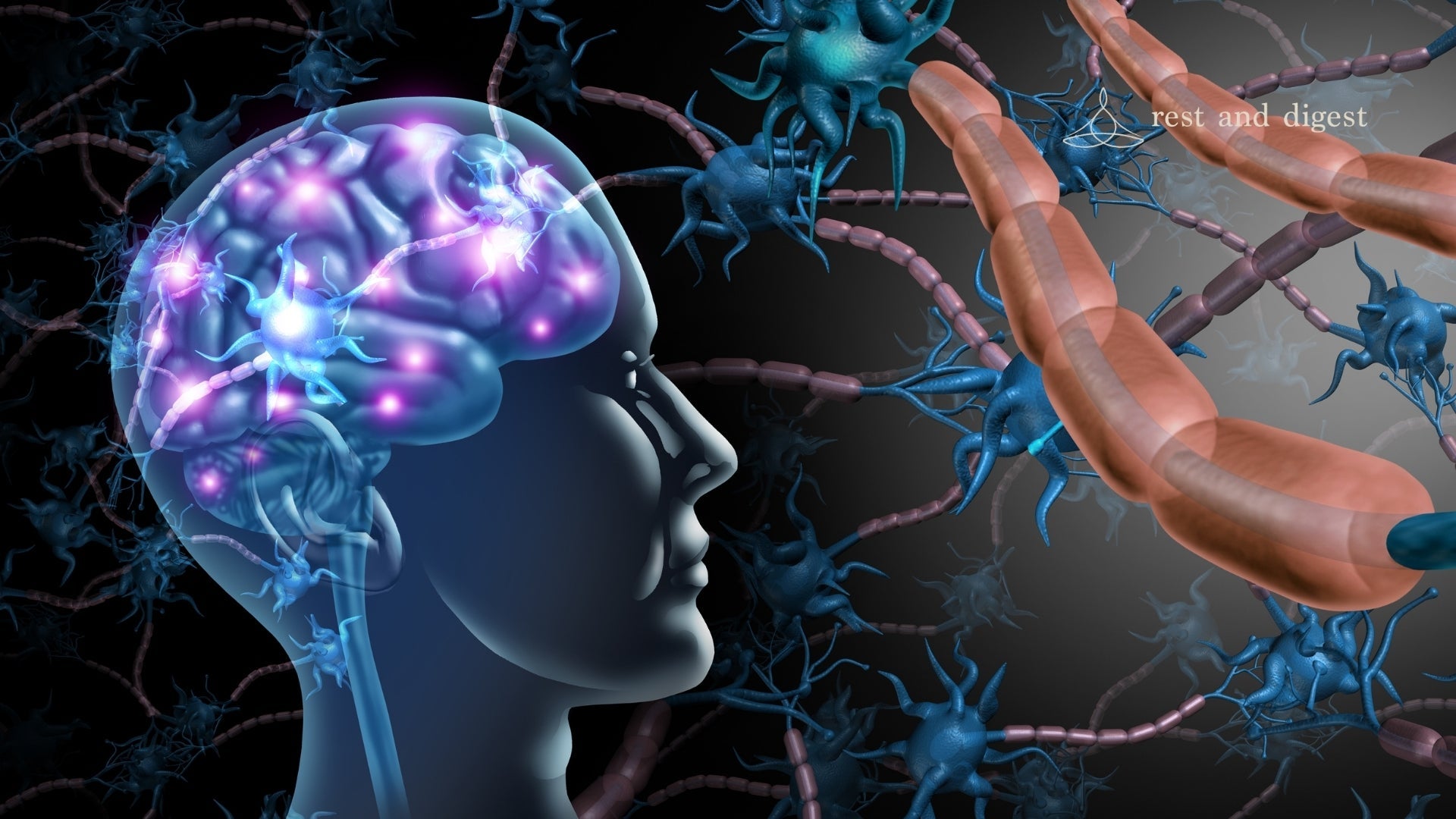
What Is The Vagus Nerve?
The vagus nerve is the 10th cranial nerve (CN X) and is the longest and most complicated of the cranial nerves. The term “vagus” comes from the Latin word for “wandering” which is fitting since it’s everywhere in the body. This nerve is a major player in the parasympathetic nervous system which is responsible for the rest and digest response. It connects the brain to several major organs and influences many physiological processes, including heart rate, digestion, immune response, etc.
Understanding where the nerve is located, what it does, and what can go wrong can give us valuable insight into how our bodies work and how we can care for them.
Where Is The Vagus Located?
The vagus nerve (CN X) starts in the medulla oblongata, a part of the brainstem that controls involuntary functions like breathing, heart rate, and blood pressure. From there it goes down through the neck and chest and branches out to innervate several organs including the heart, lungs, stomach, and intestines.
It also has branches to the ears, tongue and pharynx. In the neck, it runs near the carotid artery and jugular vein and in the chest it runs alongside the oesophagus before reaching the stomach and intestines. This vast network allows it to regulate and communicate with many organs and adapt to changes in the body’s internal environment.
What Are Its Functions?
The nerve vagus controls several functions in your body, categorised into sensory, motor and autonomic functions.
Sensory Functions
The sensory function of the cranial nerve X is to transmit information from your organs to your brain. It gathers data from your heart, lungs and digestive tract and sends it to your brain to monitor and adjust bodily functions as needed. For example, it can detect changes in your blood pressure and send a signal to your brain to regulate it. It also plays a role in taste, especially from the back of your throat and epiglottis.
Motor Functions
Motor functions refer to this nerve’s role in controlling muscle movements in various organs. It controls the muscles of your throat to enable swallowing and speech. In your digestive system it stimulates muscle contractions to move food through your intestines, a process called peristalsis. It also controls the muscles in your heart to slow it down or speed it up depending on your body’s needs.
Autonomic Functions
The vagus’s autonomic functions are probably the most important. As a major part of your parasympathetic nervous system, it’s responsible for rest, relaxation and digestion. It slows your heart rate, lowers your blood pressure, stimulates digestion and reduces inflammation. By regulating these processes, it helps maintain your body’s internal balance and homeostasis.
What Happens When The Nerve Is Stimulated?
Stimulating the vagus can do some amazing things to your body, especially when it comes to relaxation and overall bodily functions. This can happen naturally through activities like deep breathing, meditation and certain exercises or through medical interventions.
Relaxation Response
One of the most well-known effects of vagus stimulation is the relaxation response. When the nerve is stimulated it releases neurotransmitters like acetylcholine which calm us down and reduce stress. This response lowers our cortisol levels and helps our body recover from stress and anxiety. Deep breathing, yoga and meditation are known to stimulate the vagus, put us in a state of relaxation and turn off the fight or flight response.
Better Digestion
The cranial nerve X is involved in our digestion. When stimulated it releases digestive enzymes and promotes peristalsis, the movement of food through our digestive tract. This ensures our body can break down food, absorb nutrients and eliminate waste. It also regulates appetite and satiety so it’s important for a healthy digestive system.
Reduced Inflammation
The vagus has anti-inflammatory properties which can be activated through its stimulation. It communicates with our immune system to regulate inflammation and protect our body from chronic inflammatory conditions. This anti-inflammatory response is important for managing autoimmune diseases and other conditions where excessive inflammation can be harmful.
Lowered Heart Rate And Blood Pressure
Stimulating the vagus can lower heart rate and blood pressure. This happens through the release of neurotransmitters that slow down the heart and relax the blood vessels. This is good for managing hypertension and heart disease where controlling heart rate and blood pressure is key to heart health.
What Can Cause The Vagus Nerve’s Dysfunction?
Despite its importance, the vagus nerve can go wrong due to many factors and cause many health problems.
Injury Or Trauma
Physical injury or trauma to the vagus can impair its function. This can happen due to surgical procedures, accidents or medical conditions that affect the nerve pathways. Damage to the nerve can disrupt the communication between the brain and organs and the systems it controls.
Inflammation
Inflammation can affect the vagus and reduce its ability to control bodily functions. Autoimmune diseases, infections and chronic inflammation can affect the nerve pathways and cause symptoms like pain, digestive issues and irregular heart rate. Inflammation of the nerve itself known as vagus neuritis can be very uncomfortable and disrupt its normal function.
Chronic Stress
Long-term stress is also a major cause of vagus nerve dysfunction. Stress can overstimulate our sympathetic nervous system and override the parasympathetic nervous system where the vagus is involved. Over time, this imbalance can weaken the nerve’s ability to regulate stress responses, leading to chronic health issues like anxiety, depression, and cardiovascular problems.
What Are The Symptoms Of Vagus Nerve Dysfunction?
When the CN X isn’t working right it can show up in many different ways and affect many different parts of your body.
Digestive Issues
Digestive problems are a common symptom of vagus nerve dysfunction. This can be bloating, constipation, irritable bowel syndrome (IBS), or difficulty swallowing, The nerve can’t stimulate the digestive process so you can't absorb nutrients and have chronic gut discomfort.
Heart Palpitations
The vagus controls the heart rate so dysfunction can cause heart palpitations or irregular heartbeat. If you have heart conditions this can be especially concerning as it can increase the risk of heart attacks or other cardiac events.
Anxiety And Depression
Mental health issues like anxiety and depression are often associated with dysfunction of the vagus. The nerve controls your body’s stress response so when it’s not working right you may experience anxiety, mood swings and depression. This is why it’s so important to maintain a vagal tone for your mental health.
Fatigue And Weakness
Chronic fatigue and muscle weakness are also symptoms of vagus dysfunction. The nerve can’t regulate energy and muscle function so you feel tired all the time and weak physically. This can impact your daily activities and overall life.
How Can The Dysfunction Be Treated?
Dysfunction of the vagus is treated with a combination of medical interventions and lifestyle changes aimed at restoring its function and improving mental health.
Medications
Medications may be prescribed to manage symptoms of vagus nerve dysfunction such as digestive issues or heart palpitations. For example, prokinetic agents can help with stomach motility, beta blockers can help with heart rate and in some cases, anti-inflammatory medications may be prescribed to reduce inflammation in the vagus.
Vagus Nerve Stimulation Therapy
Vagus Nerve Stimulation (VNS) therapy is a treatment for people with severe nerve dysfunction, especially those with conditions like epilepsy or depression that don’t respond to other treatments. VNS therapy involves a device implanted under the skin that sends electrical impulses to the vagus to regulate its activity and symptoms.
Lifestyle Changes
Lifestyle changes are also important in managing dysfunction. These changes often include practices that stimulate the vagus and relaxation such as deep breathing exercises, meditation and yoga.
Using self care products from Rest and Digest that support relaxation and stress management can also be very helpful.
Essential Oils: Aromatherapy with essential oils like lavender, chamomile and eucalyptus can be very effective in stimulating the vagus. Products like the Serene Body Health Collection which have perfume oils made from pure essential oils are perfect for this.
Magnesium Supplements: Magnesium is known for its calming effect on the nervous system. The Base Collective Magnesium Oil Spray from Rest and Digest can be applied to your skin to ease muscle tension and support restful sleep, and overall relaxation.
Herbal Teas: Herbal teas from Love Tea and Better Tea with natural ingredients like chamomile, valerian root and lemon balm can calm your nervous system and prepare your body for sleep. Adding these teas to your nightly routine can support vagus nerve function.
Weighted Blankets: Weighted blankets provide deep pressure stimulation which activates your parasympathetic nervous system which includes the vagus. They help reduce anxiety and improve sleep.
Relaxation Tools: Using guided meditation or relaxation music plus products like Bach Original Flower Remedies Rescue Sleep Spray can create a calming environment and improve sleep.
Gua Sha Tools: Massaging your neck and shoulders where the vagus nerve is located can help stimulate the nerve. Using a Gua Sha tool can improve circulation and relieve tension in those areas.
The vagus nerve is part of the body’s nervous system that controls many functions for overall health and homeostasis. Whether through lifestyle changes or adding self care products to your daily routine, taking care of the vagus nerve is key.





